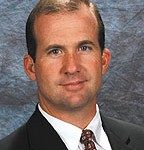Deciding who gets your assets after you die is difficult enough, but what if you want to make sure someone IS NOT included? Even though the word “disinherit” may conjure up images of family discord, there are many reasons one may wish to do it. Perhaps one of your children is a wealthy entrepreneur and another has special needs, or perhaps you are in a second marriage and want to provide for your children from a previous marriage – but not your ex-spouse.
Spouses. If you live in a community property state like Arizona and Nevada, the law assumes that your spouse automatically owns half of everything you both earned during your marriage. There are ways to define money that is yours, separate from the community property, to make sure it goes where you want when you die. However, in order to do that, both spouses must sign a written agreement that explains which assets belong to each partner separately.
Other states give your spouse the right to claim a prescribed portion of your estate, no matter what your will provides, or even if you have a will at all. In these cases, it is impossible to completely disinherit a spouse, unless your spouse is willing to sign a marital agreement waiving his or her right to your estate.
Ex-spouses. Your ex-spouse has no claim to the assets of your estate, unless he or she has some claim against your estate before you die, such as a court order that has awarded a portion of a retirement benefit or pension. It would depend on how the assets were separated at the time of the divorce. Significantly, insurance policies with an ex-spouse inadvertently left as beneficiary take precedence over a will that leaves those same assets to another.
Children. In most cases, you can disinherit a child or grandchild simply by stating so in your will. However, simply omitting to mention a child does not automatically disinherit a child. Most states have laws that protect against accidental disinheritance; for example, if a child was born after you drafted your will.
Disinheritance is a personal issue. One who wishes to disinherit a family member may find that there are other effective options, such as putting assets in a trust for that heir, with a trustee making the decisions of what the money can, and can not, be used for. It is wise to consult an estate planning attorney before making decisions that affect the distribution of your estate and the harmony of your family, once you are gone.
Jeffery J. McKenna is an attorney licensed and serving clients in Nevada, Arizona and Utah with a local office in Mesquite.
